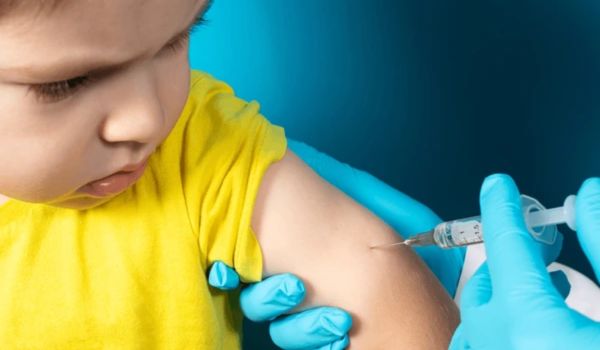DTP Vaccination in India
Diphtheria, Tetanus and Pertussis (DTP)
What is DTP?
D" stands for Diphtheria, "T" stands for Tetanus, and "P" stands for Pertussis. These three are serious diseases caused by bacteria. Diphtheria and Pertussis are spread from one person to another, while Tetanus enters the body through cuts and wounds, which may not appear dangerous and are often unnoticed or neglected.
What are the symptoms and harmful effects of DTP?
- Diphtheria: It causes a thick covering in the back of the throat. It can lead to breathing problems, paralysis, heart failure, and even death in severe cases.
- Tetanus: It causes painful tightening of the muscles, usually all over the body. Tetanus can lead to locking of the jaw, making it impossible for the victim to open their mouth or swallow. Deaths because of Tetanus are around 10%.
- Pertussis (Whooping Cough or Black Cough): It causes severe coughing spells that make it hard for infants to eat, drink, or even breathe. These spells can last for weeks. Pertussis can lead to pneumonia, convulsions, brain damage, and death.
Who is susceptible to DTP?
All unprotected children are at risk of these three serious diseases. DTP can be prevented by vaccinating children.
Who should get the DTP vaccine and when?
All children should get five doses of the DTP vaccine according to the following schedule:
- 6 weeks, 10 weeks, 14 weeks
- 1st booster: 16-18 months
- 2nd booster: 5 years
Can the DTP vaccine be taken during illness?
- Children with minor illnesses, such as a cold, may be vaccinated, but children who are moderately or severely ill should wait until they recover.
- A child who had a life-threatening allergic reaction after a dose of the DTP vaccination should not receive another dose.
- A child who had encephalopathy (brain illness) or nervous system disease within 7 days after a dose of DTP should not receive another dose.
- A child who had a temperature of 105°F within 48 hours after a dose of DTP should probably not receive another dose of the Pertussis-containing vaccine.
- A child who collapses or goes into a "shock-like" state within 48 hours after a dose of DTP should probably not receive another dose of the Pertussis-containing vaccine.
- A child who cries continuously for 3 or more hours within 48 hours after a dose of DTP should probably not receive another dose of the Pertussis-containing vaccine.
- A child who has convulsions within 3 days after a dose of DTP should probably not receive another dose of the Pertussis-containing vaccine.
What is the importance of booster doses?
It has been observed that even after 3 doses of the DTP vaccine, the protection level is only 80%. Therefore, it is prudent to administer 2 boosters for better protection against DTP.
Can the DTP vaccine be given to older children and adults?
DTP should not be given to anyone aged 7 years and above because the Pertussis vaccine is only licensed for children under 7 years. However, if older children, adolescents, and adults still need protection from Tetanus and Diphtheria, a booster dose of DT is recommended at 11-12 years of age and then every 10 years.
What are the risks from the DTP vaccine?
A vaccine, like any medicine, is capable of causing serious problems, such as severe allergic reactions. The risk of the DTP vaccine causing serious harm, or death, is extremely small.
Mild Problems (Common):
- Fever
- Redness or swelling
- Soreness or tenderness at the site of injection
- Irritability or fussiness (up to about 1 child in 3)
- Tiredness or poor appetite (up to about 1 child in 10)
- Nausea (up to about 1 child in 50)
These problems generally occur 1-3 days after the injection.
Moderate Problems (Uncommon):
- Seizure (about 1 child out of 14,000)
- Non-stop crying for 3 hours or more (up to about 1 child out of 1,000)
- High fever, over 105°F (about 1 child out of 16,000)
Severe Problems (Very Rare):
Serious allergic reaction (less than 1 out of a million doses)
(2).jpg)



